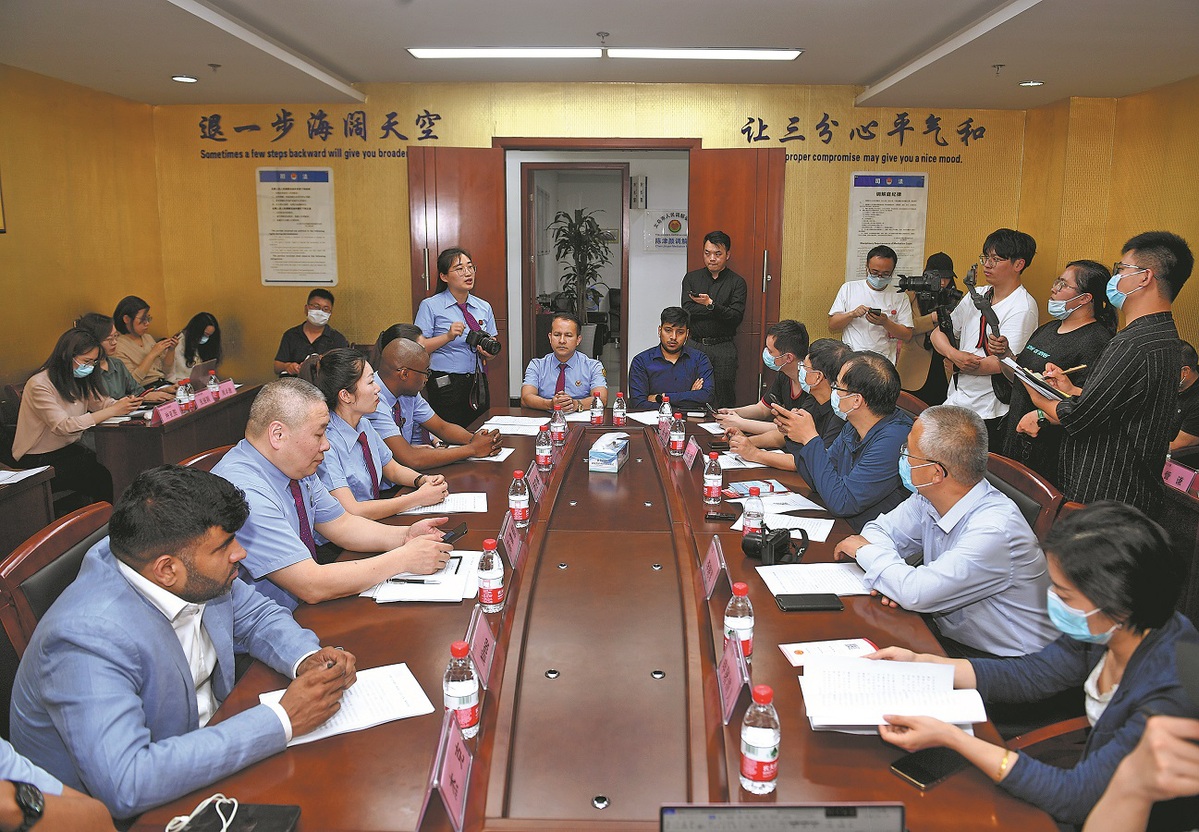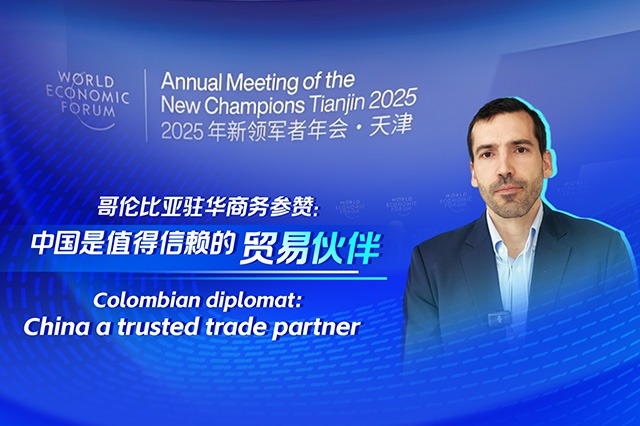Foreign mediators play crucial role in dispute resolution
Assistants with language skills, cultural understanding aid courts in handling cases


Kyrgyzstan native Meerzat Omuralieva has made a name for herself in Yiwu, Zhejiang province.
As a popular businesswoman in the jewelry trade in this global hub for small commodities, she is also a trusted mediator for numerous international merchants.
On June 12, Omuralieva arrived at the People's Mediation Committee for Foreign-related Disputes of Yiwu City, located in the Yiwu International Trade Market. Her job that day was to assist an Azerbaijani businessman in a dispute over a 110,000 yuan ($15,315) purchase of beach pants from a Chinese vendor surnamed Huang.
The Azerbaijani, encountering problems with the color and tags of the pants, sought help from the committee. However, due to his limited proficiency in both Chinese and English, Omuralieva, who is well-versed in the languages and cultures of both parties, was brought in to mediate, with the support of a judge.
"Language barriers can indeed cause misunderstandings between Chinese and foreign merchants. Even when people speak the same language, cultural differences can also lead to disputes," Omuralieva said, adding that being "multilingual and culturally aware" is essential for mediation.
With over 21,000 foreign merchants from more than 100 countries, the city saw its import and export value reach 668.9 billion yuan in 2024, an increase of 18.2 percent from the previous year, according to Yiwu customs data. Such high economic activity means disputes over payments and product standards are common.
To address these issues, Yiwu established China's first such committee to mediate disputes between Chinese and foreign businesses in May 2013. Under the guidance and judicial confirmation of the Yiwu court over the past decade, the committee has attracted 20 foreign mediators from 15 nations, such as South Korea, Nepal, India, Germany, Afghanistan, and Kyrgyzstan, and mediated 1,259 disputes to date.
Ye Fei, chief judge of the court's Fourth Civil Division, lauded this approach of leveraging foreigners to help mediate foreign-related disputes, and regards it as an innovation to provide more efficient legal services for enterprises from abroad. Over the past three years, 83 percent of international commercial disputes mediated through this innovative mechanism have been successfully resolved, she said.























